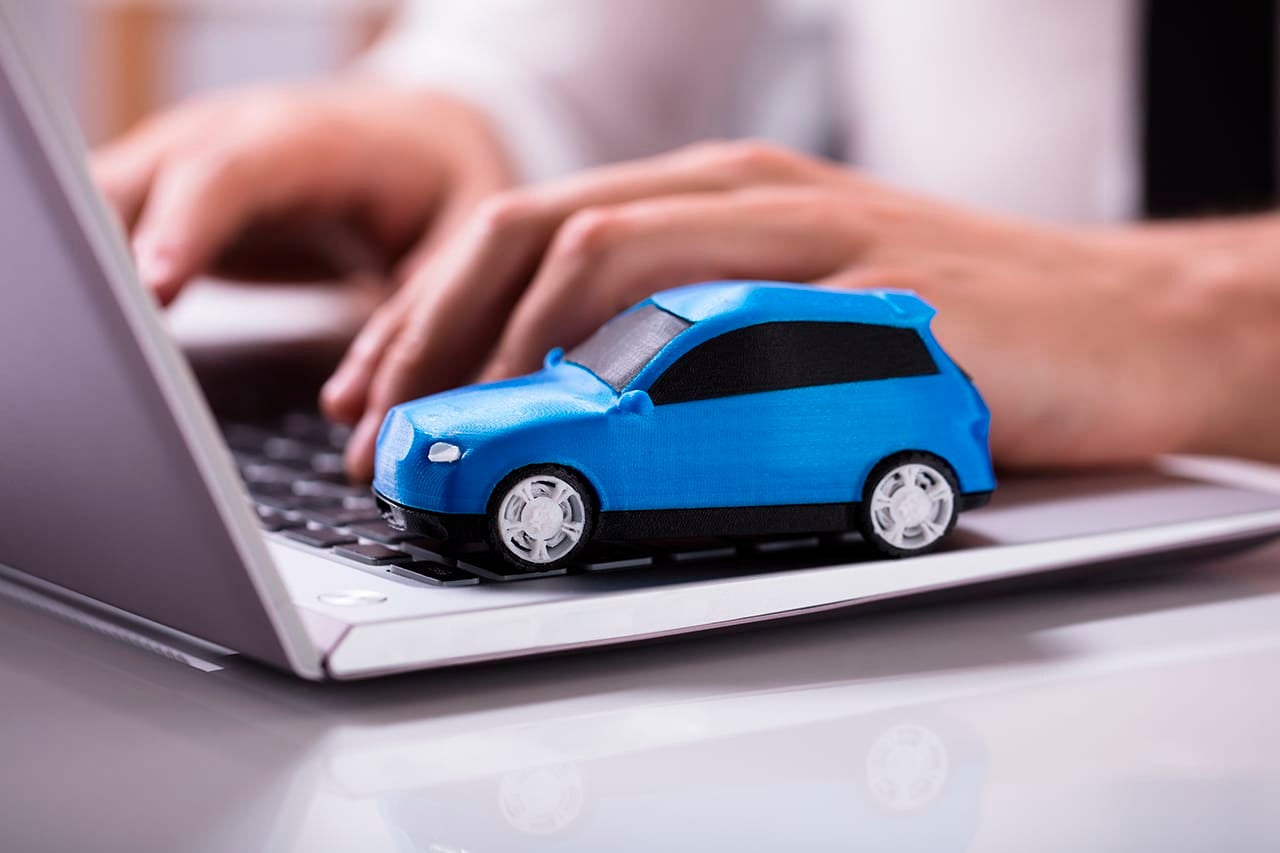If you’re looking to sell your car online, you can anticipate the process by taking a few steps:
- Determine your car’s value: Research the value of your car online using reputable guides like Kelley Blue Book (KBB). Knowing how much your car is worth can help you choose the right asking price when listing your car or negotiating with buyers.
- Prepare your car: Remove all personal possessions and paperwork from your car, and thoroughly clean both the interior and exterior. If possible, repair any minor defects and other issues before listing.
- Decide whether to sell or trade: Depending on the condition of your car, you may be able to use your car as a down payment toward a new car. Remember, sometimes car dealerships won’t offer the best price, either to buy your car outright or for trade. It may pay to wait for a private buyer.
- Gather lease and loan information: If applicable, you’ll need to provide any existing auto loan or lease information to dealers. Some dealers may pay off any remaining loan or lease amounts.
- Document vehicle information: You’ll need to record your vehicle’s make, model, year, condition, mileage and any other relevant information, either in a disclosure to the dealer or buyer or as part of your vehicle ad. Check your vehicle history report to make sure everything is accurate before listing your car.
- Take photos of your vehicle: Prospective buyers will want to see your car’s interior and exterior plus any flaws, damages and other key features. Take pictures of anything you would want to know if you were the buyer.
- Choose how to sell: Get offers from online dealers and check how much your car is worth on the private seller market to help guide your decision. If you feel comfortable haggling, working with a car dealer can expedite the process and provide trade-in value.
- Schedule test drives or inspections: Private buyers will need to test drive your vehicle before buying, while dealers may need to schedule an inspection.
- Finalize paperwork: No matter how you choose to sell, you’ll need to finalize the car sale and transfer your title.
- Drop off your vehicle or schedule pickup services: With most online services, you can schedule a pickup or drop-off directly from the company’s website. However, with private buyers, you’ll need to negotiate these details for convenience and safety.

Take steps to protect yourself from low offers and scams when selling your car online. Photo: Andrey Popov – stock.adobe.com
Tips: How To Sell a Car Online Safely
Whether you’re selling your car to an online dealer or want to find a private buyer, ensure you take proper precautions during every step to protect yourself and your property.
Choose Reputable Online Marketplaces and Buyers
If you’re considering an offer from an online dealer, take a moment to look into that service before agreeing. Read customer reviews and in-depth company profiles, or check out the company’s business ratings on sites like the Better Business Bureau.
When selling on a private marketplace, ensure that the market has privacy protections and other security features in place before making an account.
Avoid Providing Personal Information
While some online dealers and car selling companies will request your vehicle’s license plate number or vehicle identification number (VIN), you shouldn’t be asked for your personal information beyond contact info as part of requesting an estimate or offer from your car.
Similarly, when you list your car on private marketplaces, don’t include any information that could help strangers identify you. Avoid taking pictures of your vehicle with identifying information or features in the background.
If someone on a private seller marketplace has received your personal information without your consent, report that person on the marketplace platform.
Meet Buyers in Safe Locations
Always meet your buyer in a safe public location, ideally during daylight hours. In some cities, local law enforcement has established safe areas specifically for this type of public use. Contact your local authorities to ask about any safe areas in your region or choose to meet at a well-populated location.
Remove All Personal Items From Your Vehicle
Never leave personal items or documents in a car during a test drive or sale. Remove these items as part of preparing your vehicle before putting your car on the market.
Ask Your Buyer Questions
Whether you’re working with a dealer or a private party, asking questions can help you confirm the legitimacy of your buyer’s offer. Confirm that they understand details about your vehicle or ask them about their interest in it. A good lead-in is to request a phone chat. In many cases, scammers can’t match the profile they present online and will quickly break contact if asked to speak on the phone.
Request Cash Payments
In private seller auto marketplaces, scammers often use electronic or check-based payment methods to facilitate the theft of money or vehicles. While not all offers for payment by check or deposit are scams, requesting cash payments can help reduce the risk involved in advertising to private buyers.
Consider Offers Carefully
Scammers often depend on how eager sellers are to close a deal. If a buyer makes you an offer that sounds too good to be true, chances are it is. Buyers interested in making genuine offers will ask questions, request a test drive and have no objections to safe meeting locations.
